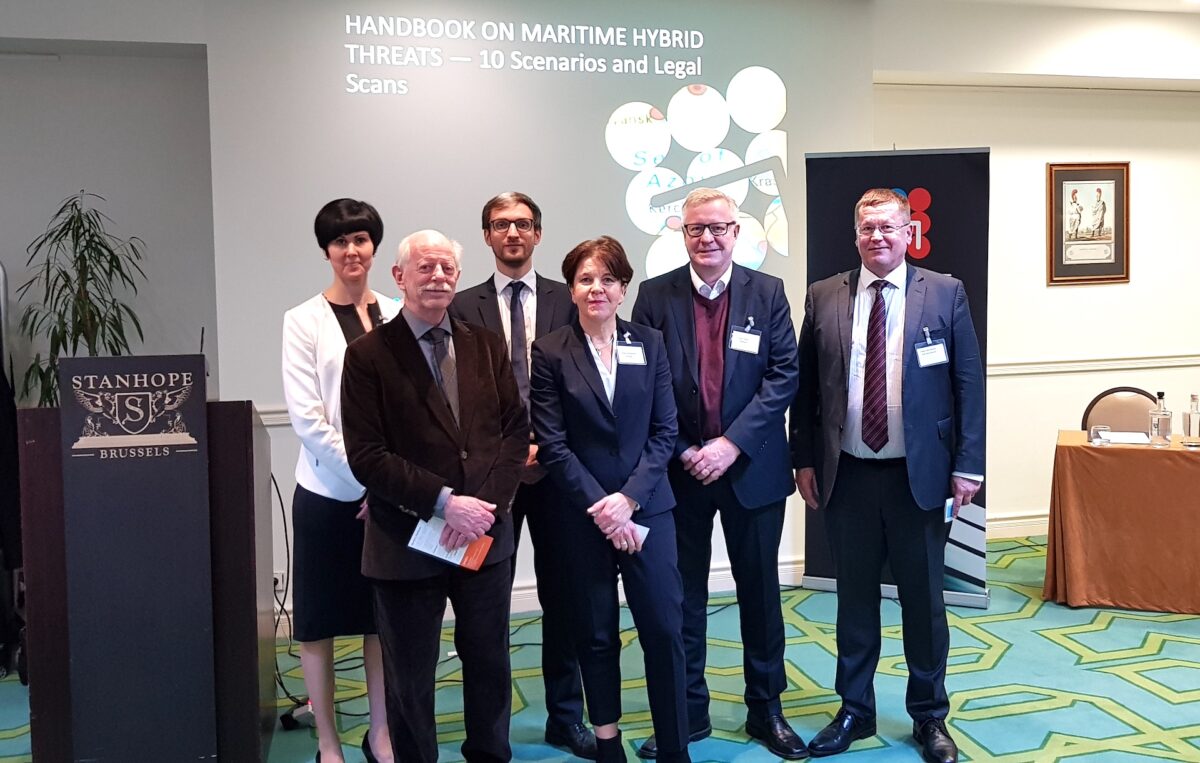Hybrid CoE’s Community of Interest on Vulnerabilities and Resilience (COI VR) presented the results of their 2019 workstrands in Brussels on 22 November. The event gathered together some 60 participants representing participating states’ permanent delegations, the EU and NATO, in addition to research institutions and state actors. The following publications were handed out during the event:
- A Working Paper entitled HANDBOOK ON MARITIME HYBRID THREATS – 10 scenarios and legal scans. The handbook presents a taxonomy of maritime hybrid threats, complementing each category with a legal assessment.
- A Working Paper on Hybrid Threats and Vulnerabilities of Modern Critical Infrastructure – Weapons of Mass Disturbance? by Jukka Savolainen.
- EU-NATO cooperation in civil protection/Health-related scenario A report based on a workshop on EU-NATO cooperation in civil protection, which was organized in cooperation with the Romanian Presidency of the Council of the European Union in February 2019. The workshop took stock of EU and NATO requirements and methods for civil protection by testing them in a tabletop exercise dealing with a medical-based scenario.
- Hybrid scenarios in the Baltic Sea A report based on a workshop organized jointly with the maritime and seaport safety and security project platform ResQU2* and its lead partner the University of Turku, which was held in the Turku Archipelago, Finland in May 2019.
- Hybrid threats and harbour protection A report based on a workshop on Hybrid Threats and Harbour Protection, which Hybrid CoE’s COI VR organized in cooperation with the European Defence Agency (EDA) and the ResQU2* platform in October 2019.
The event concluded the second year of operation for COI VR. The team will pursue its work in accordance with the Centre’s objectives during the upcoming year by continuing ongoing projects and embarking upon new ones.
For further information, please contact Director of COI VR Jukka Savolainen: jukka.savolainen@hybridcoe.fi.
*The ResQU2 platform is funded by the EU’s Interreg programme and led by the University of Turku.



